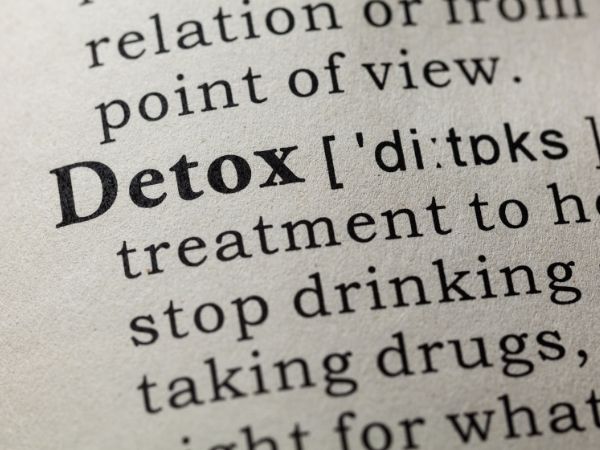Although drinking alcohol isn’t commonly liked by everyone, most people drink it for various reasons. Drinking alcohol may be associated with celebrations, gatherings, or a simple way to end a meal. Having a drink now and then would probably not be harmful to anyone. Drink too much, though, and you might be facing a lot of problems.
For some, they might drink alcohol as a stress reliever due to its sedative properties.
Others drink alcohol to loosen up and build some confidence when interacting in social gatherings.
Their reasons for drinking might differ, but when one exceeds the suggested amount of alcohol, it becomes a problem. Excessive drinking is a more common problem than people might think. Still, it’s difficult to give a general guideline for people to follow since alcohol’s effects differ from person to person.
Alcohol affects people differently because their bodies process alcohol at different rates. Common factors would be gender, body weight, medication, and food intake. Because of these differences, making a guideline for alcohol consumption becomes more complicated than merely limiting a person’s alcohol consumption.
How many drinks per week falls under alcoholism?
Alcohol Use Disorder (AUD) is a mental disorder commonly characterized by a person’s inability to regulate their consumption of alcoholic drinks. Regardless of the harmful effects, it may bring to them, alcoholism is still prominent.
People who show two or more symptoms from the criteria below are likely to be diagnosed with AUD:
-
Spending more time consuming and consuming more alcohol than intended
-
Inability to limit or stop alcohol use
-
Spending a lot of time drinking, being ill, and experiencing the effects of consuming alcohol
-
Inability to think of other things besides alcohol
-
Neglecting responsibilities because of alcohol
-
Continued drinking despite causing problems with family and loved ones
-
Giving up interesting or enjoyable activities to drink
-
Repeatedly being intoxicated in situations that increase the chance of being injured (e.g., using machinery, driving)
-
Continuing alcohol consumption even while depressed
-
Having to increase the amount of alcohol to get the desired results since the previous amount is no longer effective
-
Experiencing symptoms such as insomnia, difficulty staying asleep, aggravation, nervousness, sadness, stomach upset and nausea, excessive perspiration, and hallucination after alcohol’s effects wear off
The number of drinks consumed is not the only criteria we look at in diagnosing a person with AUD. However, heavy drinking and binge drinking increase the risk of many physical problems, including the risk of being diagnosed with AUD.
How much is too much alcohol weekly?
We classify women who drink 7 or more drinks per week and men who drink 15 or more drinks per week as heavy drinkers. Since people metabolize alcohol differently, this general rule may not apply to everyone. Some factors that affect alcohol metabolization are as follows:
-
Gender – due to women having a smaller average body size compared to men, women typically have less body water and a higher liver-to-lean-body-mass ratio. The ratio difference leads to women reaching high blood alcohol levels faster and metabolizing alcohol more quickly than men.
-
Body Weight – A person’s body weight can determine how much blood alcohol concentration their body can take. A heavier person will typically have less blood alcohol concentration than a person who has less body weight and drinks the same amount.
-
Medications – Some medications have interactions when combined with alcohol. These interactions could cause the drink’s effects to worsen and, consequently, be fatal to the person.
-
Food Intake – People who eat before or while drinking slow down their body’s ability to break down alcohol.
What happens if you drink every week?
Regular excessive drinking may increase the risk of different health problems.
Liver and Pancreas Damage
The liver is the organ that metabolizes alcohol. Since it can only metabolize small doses of alcohol at a time, the excess ends up circulating in the body. Excessive drinking can cause considerable damage to the liver, such as causing fatty liver, liver inflammation, and liver scarring. Excess alcohol consumption can also influence the release of toxic substances by the pancreas, causing which can cause pancreatitis and prevent proper digestion.
Brain Damage
Alcohol consumption can alter mood, behavior, and even coordination by blocking specific pathways in the brain. Continuous excessive use of alcohol may also lead to physical damage to the brain.
Heart Disease
People who go over their recommended amount of alcohol have a higher chance of getting cardiomyopathy, arrhythmia, stroke, and high blood pressure.
Increased Cancer Risk
Organs, such as the throat, esophagus, and liver, that come into contact with alcohol have an increased likelihood of developing cancer.
Immune System failure
Heavy alcohol drinking can cause a person’s immune system to weaken. A weak immune system leads to higher chances of catching diseases for people who drink excessively.
Who should you consider a heavy drinker?
The NIAAA give some examples of the amount of alcohol in one drink:
-
12 fl oz. of beer (5% alcohol content)
-
8-9 fl oz. of malt liquor (7% alcohol content)
-
5 fl oz. of table wine (12% alcohol content)
-
1.5 fl oz or a shot of 80-proof distilled spirits (40% alcohol content)
In general, men who drink 15 or more drinks and women who drink 7 or more drinks per week are already heavy drinkers. We can call it “binge drinking” when men consume 5 or more drinks, and women drink 4 or more drinks in under two hours.
Unlike moderate drinkers who drink the recommended amount per week, heavy and binge drinkers have more risk of developing harmful complications and diseases.
How Much Alcohol Is Safe to Drink?
There is little evidence about the benefits of alcohol. The potential benefits of alcohol heavily rely on their choices, such as a person’s diet and exercise, which affect those benefits and how much of an impact they can have.
However, we only see these kinds of health benefits in people who have moderate drinking habits. Moderate alcohol consumption defines it as females who drink 1 drink a day and males who drink at most 2 drinks a day. Some health benefits that we might see in moderate drinkers are as follows:
-
Reduced risk of heart disease
-
Lower chances of ischemic stroke
-
Lesser risk of diabetes
Although we see these benefits in moderate alcohol consumption, a change in diet and exercise proves to be more beneficial than consuming a drink.
What Do I Do If I Feel Like I Drink Too Much?
Understanding that you have a problem with alcohol is an excellent first step in the right direction. Alcohol addiction isn’t something people would like to admit readily, as underlying issues that we can’t easily ignore may be the root cause.
From there, it is crucial to surround yourself with caring and committed healthcare professionals that can serve as your support group through your process of rehabilitation.
Here at Buena Vista Health and Recovery Center, we offer alcohol and substance detox and rehabilitation programs to help you or your loved one through their struggle.
Our professionals offer different therapies, sober living support, and other treatment and rehabilitation programs. It’s better to live life with a clear and clean mind. Visit us at https://buenavistarecovery.com/ to take that next step into a better life.






